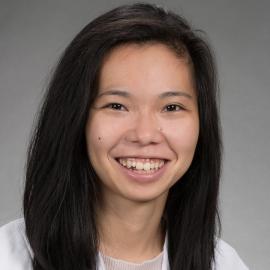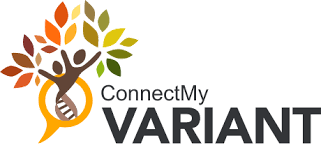Teams deliver parent education and support programs, TB treatment adherence solutions, AI-powered surgery video editing software, and a platform to help prevent hereditary cancer
Last June, CoMotion announced eight Innovation Gap Fund winners across multiple disciplines from life sciences to engineering and social work. Each team received up to $50,000 to support research projects through “the valley of death.” This is a time that is especially challenging for early entrepreneurs as they work to advance their research from being academically-focused into something commercially viable and compelling for private capital investments.
This month, we’re highlighting four award winners — Strive Online, Tuberculosis Treatment Support Tools (TB-TSTs), Semi-Automated Method of Editing Surgical Videos, and ConnectMyVariant — to share more about their stories, innovations, and impact.
For more information about the CoMotion Innovation Gap Fund and to view the complete list of winners, see our June blog post. To stay informed of future highlights, sign up for our CoMotion newsletter and follow CoMotion Twitter and CoMotion LinkedIn.
Strive Online
Children who are placed in temporary state custody often experience trauma and long-term adverse effects. Over the last six years, Dr. Susan Barkan, Laura Orlando, and Kristen Greenley have been working to improve these outcomes through the creation and implementation of Strive, an evidence and trauma-informed parent education and support program for supervised family time visits.
Strive promotes child safety, positive family functioning, and reduced trauma for both parents and children. It improves the family time experience by building trusted relationships between parents and involved professionals, fostering a sense of hope. This helps parents engage more fully in family time and helps them create positive emotional connections with their children, increasing the likelihood of being successfully reunited.
With the Innovation Gap Fund award, the team is working to make Strive content more widely accessible through Strive Online, a self-funded series of e-learning courses. This step will help to change the dynamics for parents and children in a system that is in dire need of support, but short on funds and resources.
The funding has enabled the team to embark on a customer discovery process to review and reflect on the funding structure that will support paid access for Family Time Providers. According to Laura Orlando, “Given that our focus is on social impact, we are less familiar with how the business world thinks and operates. This insight has been invaluable to us.”

PI:
Dr. Susan Barkan, Director of Research, Partners for Our Children
Team:
Laura Orlando, MSW, Strive Project Director, Partners for Our Children
Kristen Greenley, Strive Research Consultant, Partners for Our Children
Innovation Manager:
Kelly Meinig
Mentor:
Chris Crane
Learn more and connect:
Strive Parenting
Partners for Our Children
UW School of Social Work
Tuberculosis Treatment Support Tools (TB-TSTs)
Although tuberculosis (TB) is curable, it requires a long, six to nine-month course of treatment. Unfortunately, many patients do not adhere to their treatment plan due to barriers including structural, patient, social, and healthcare service factors. No matter what the cause, poor medication adherence leads to poor outcomes. In the last year alone, TB claimed 1.5 million lives worldwide. This number is projected to increase over the next five years, as the COVID-19 pandemic has reversed years of progress and effort.
Dr. Sarah Iribarren and her team are working to change that with Tuberculosis Treatment Support Tools (TB-TSTs). TB-TSTs provide TB management teams with an accurate and efficient way to monitor medication adherence and support patients, helping to ensure successful outcomes. With these tools, issues can be addressed quickly with less intrusive approaches, and non-essential clinic visits can be reduced.
The team continues to improve all aspects of the intervention, streamlining the patient-facing app, iterating on the metabolite test strip, and working on a mobile-optimized version of the clinician-facing app. With the Innovation Gap Fund award from CoMotion and Population Health, the team plans to improve the point-of-care test and reformulate it for higher production opportunities.
Dr. Iribarren states, “We have benefited from a number of services and resources of CoMotion. This has been an interesting, iterative journey from which we have learned more about the test and needs of end users.”


PI:
Sarah Iribarren, PhD, Associate Professor, Biobehavioral Nursing and Health Informatics
Team:
Barry Lutz, PhD, Associate Professor, Department of Bioengineering
Jennifer Sprecher, Project Manager
Kyle Goodwin, Software Engineer, UW I-School graduate
Daniel Leon, Research Scientist
Bayla Forman, UW Biology student
Jesse Keyes, Research Assistant, UW Bioengineering graduate
Alfie Vidrio, Research Assistant, UW Human Centered Design & Engineering student
Prior bioengineering team students including:
Adil Mohamed, Diana Reiman, Marcus Rhodehamel, Hannah Erdy, Rishika Das, and Bhavica Saxena
Human Centered Design & Engineering students
through directed research groups
Innovation Manager:
Roï Esienkot
Mentor:
George Gosieski
Semi-Automated Method of Editing Surgical Videos
Surgeries span hours but are only summarized and documented into two to three paragraphs of operative notes. Creating these operative notes is time-intensive, and the quality varies widely. Because surgery is an inherently visual specialty, crucial details and context can be lost, impacting patient care and people’s lives.
With their team, Dr. Lingga Adidharma and Dr. Randall Bly are developing software that uses artificial intelligence (AI) technology to edit multi-hour surgery videos into short videos that can be shared among surgeons to augment their daily practice. Dr. Adidharma notes, “As surgeons, we are excited about the prospect of being able to use surgical videos for a myriad of activities beyond improving medical documentation, such as for research presentations, educational archives, evaluating surgical resident skills, and more. Although the project initially began for our own academic interest to improve efficiency in editing surgical videos, we quickly realized how important this was to modernize surgical documentation and improve patient safety.”
With the Innovation Gap Fund award, the team aims to improve the software’s sensitivity, make the interface more user-friendly, and increase backend reliability. These improvements will open the possibility for a large, multi-institutional beta study in order to gather data and conduct necessary testing to release a full product that will improve patient care.
“There isn’t one set prescribed path,” says Dr. Adidharma. “But we found that having team members who are experts in different fields, actively seeking out opportunities, and forming partnerships with CoMotion were essential for our growth.”


PIs:
Lingga Adidharma, MD
Randall Bly, MD
Team:
Yangming Li, PhD
Daniel King, BS
Zixin Wang, BS
Blake Hannaford, PhD
Kris Moe, MD
Manuel Ferreira, MD, PhD
Chris Young, MD
Waleed Abuzeid, MD
Ian Humpherys, DO
Innovation Manager:
Ryan Buckmaster
Mentor:
Karim Fanous
Learn more and connect:
UW Otolaryngology – Head and Neck Surgery
Instagram: @uwotolaryngology
Twitter: @oto_uw
UW Department of Neurological Surgery
UW Department of Electrical & Computer Engineering
RIT Department of Electrical & Computer Engineering Technology
ConnectMyVariant
More than twenty genes (i.e. BRCA1, BRCA2, MLH1, PTEN, TP53) result in inherited cancer risk, and these genes, or genetic variants, are responsible for about 10% of all cancer. Guideline-endorsed medical interventions, such as screening and mastectomy for breast cancer and frequent colonoscopies for colon cancer, may prevent cancer. The challenge, however, lies in identifying and notifying individuals with variants before cancer appears, so they can benefit from specific prevention measures.
With ConnectMyVariant, Dr. Brian Shirts and his team are working to address this challenge to prevent all forms of hereditary cancer. The platform, built with initial funding from the Brotman Baty Institute for Precision Medicine, connects patients who are aware of genetic mutations, identifies those who may be at risk based on their familial relationships, and provides educational resources and strategies for cancer prevention.
With the Innovation Gap Fund award, the team will establish the groundwork for a national and international public service to improve public health. Funding will be used to actualize a go-to-market plan that streamlines and optimizes participant acquisition and educational material trials. Additionally, the team is developing partnerships with businesses to reach people who are constructing family histories or making decisions around prevention screenings.
“Getting connected with an amazing innovation manager and mentor, as well as a huge list of resources to move ideas towards real-world impact, has been beneficial,” says Dr. Shirts. “It has been thrilling to meet a real need and see how many people are eager to help distant relatives that they have never met. Participants’ enthusiasm and appreciation for cancer prevention outreach is constantly inspiring.”


PI:
Brian Shirts, MD, PhD, Associate Professor, UW Department of Laboratory Medicine and Pathology
Team:
Emily Malouf, Genetic Counselor
Jailanie Kaganovsky, Project Coordinator
Professor Jill Crandell, AG, MS, Genealogy Consultant, Associate Teaching Professor, Brigham Young University
Dean Owen, Brotman Baty Institute for Precision Medicine
Nola Klemfus, Brotman Baty Institute for Precision Medicine
Mentor:
Chandler Lewis
Innovation Manager:
Jennifer McCullar
Learn more and connect:
ConnectMyVariant
Facebook: MyVariant
UW Department of Laboratory Medicine and Pathology